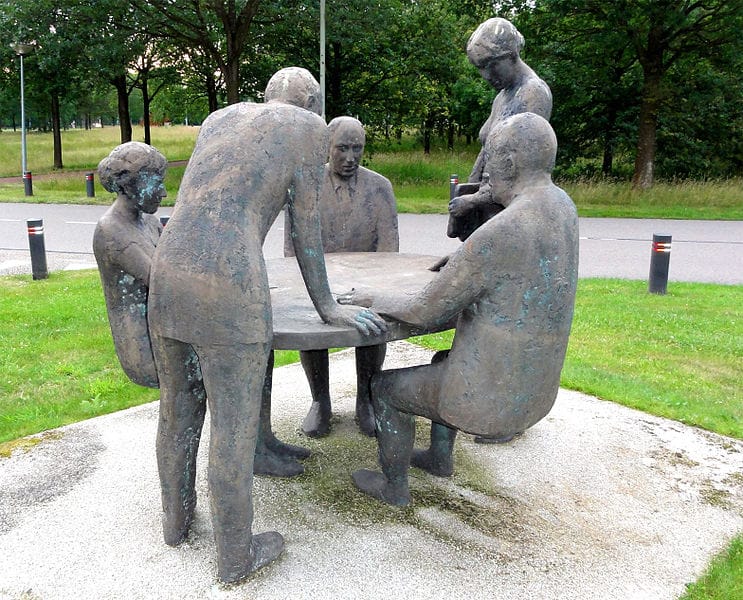💬 New Policy Kit: Deliberative Democracy Processes

Today, DPN has released our Deliberative Democracy Processes policy kit, an open resource for legislators, advocates, journalists, and citizens to learn how states can utilize citizen deliberation models to break gridlock, reduce special-interest capture, and build consensus. The kit was organized by Michael Swerdlow, Tenzin Kartsang, and Jordan Lari, in partnership with Stanford’s Deliberative Democracy Lab.
A promising method for reinvigorating a democratic spirit within our institutions is to incorporate into governance deliberative democratic processes: formal processes that empower ordinary citizens to deliberate on matters of public importance and to directly advise, decide, or govern public affairs.
American governments have primarily used derivative democratic forms, like representative democracy, in which citizens delegate responsibility to elected representatives, and administrative democracy, in which those elected representatives hire a civil service to execute public purposes. Supplementing these processes with deliberative democratic practices—where, like in ancient Athens, citizens can come together to discuss public affairs, hear each other’s arguments, and vote on public policy—could help address major problems with American governance, including widespread polarization, legislative gridlock, and elite capture.
There are various forms of deliberative democratic practice. In Deliberative Polling, a representative sample of the public deliberates to provide robust public opinion polling that can be used to advise or decide on a public issue. Citizen Juries involve a handful of randomly selected citizens gathering to study and design solutions to public problems. Citizen Boards involve citizens meeting regularly to advise and even govern public institutions. With Independent Citizens Commissions, a select group of citizens are tasked with creating specific work products, like a new electoral redistricting map. Citizens’ Assemblies are citizens who are chosen by lot to deliberate and then advise, recommend legislation, or perform oversight.
In this kit, we show seven ways states and localities can incorporate deliberative democracy practices into governance, as well share promising case studies of deliberative democracy in action.
If you are a legislator, activist, expert, or journalist looking to help promote this policy in your state, check out (and share) our kit — and please get in touch!

